Cedric Hampson won the Rhodes Scholarship in 1955. He read for the degree of Bachelor of Civil Law (BCL) at Magdalen College, Oxford. His tutors at Magdalen were Rupert Cross, John Morris and Gunter Treitel: three of the most brilliant academic lawyers of the common law world.
The current author of Cross and Tapper on Evidence, Professor Colin Tapper, was a first year undergraduate when Cedric Hampson was in his second year of the BCL. Hampson was the first Australian that Tapper had encountered in person. Colin Tapper recalls the occasion:
“I have a particularly vivid recollection of first seeing Cedric in the Law Library at Magdalen when I first entered it as a timid freshman. I think he was then in the second year of his BCL, ensconced in a chair at the head of the long table in the middle of the old Law Library. I think he was the first Australian I had ever seen, or heard, and he amply fulfilled my expectations in both respects. I don’t think he was wearing a slouch hat with corks dangling from the rim, but only in that did he fall short of my prototype. I was far too junior to him to have got to know him well, but he gave an inspiring impression of benign wisdom from afar.”
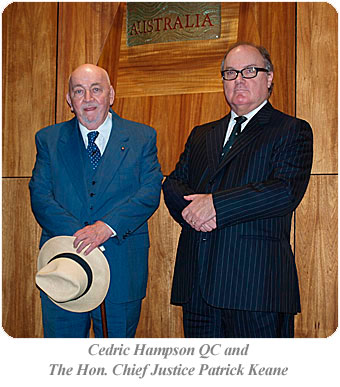 Cedric Hampson later steered many other Queenslanders in the direction of Magdalen College. They include the Chief Justice of the Federal Court, Patrick Keane.
Cedric Hampson later steered many other Queenslanders in the direction of Magdalen College. They include the Chief Justice of the Federal Court, Patrick Keane.
Some of us recently joined Chief Justice Keane and Cedric Hampson QC to thank them for encouraging us to read the BCL at Magdalen. Unfortunately, Shane Doyle SC and George Brandis SC were unable to join us: Shane was on the other side of the planet and George was attending a Shadow Cabinet meeting in Canberra. We were joined by this year’s Rhodes Scholar, Jessica Howley, who will soon travel to read the BCL at Magdalen. Jessica continues the Magdalen College connection that Cedric fostered 55 years ago.
These days Colin Tapper is Emeritus Professor of English Law at the University of Oxford and still teaches evidence at Magdalen College. Both Hampson and Tapper were taught evidence by Sir Rupert Cross.
Many do not know that Cross, the author of Cross on Evidence, Statutory Interpretation, Precedent in English Law and many other works was blind from the age of one. His achievements in the face of that disability remain truly inspiring. The professional and academic achievements of his students from the 1950’s, Hampson and Tapper, are equally inspiring.
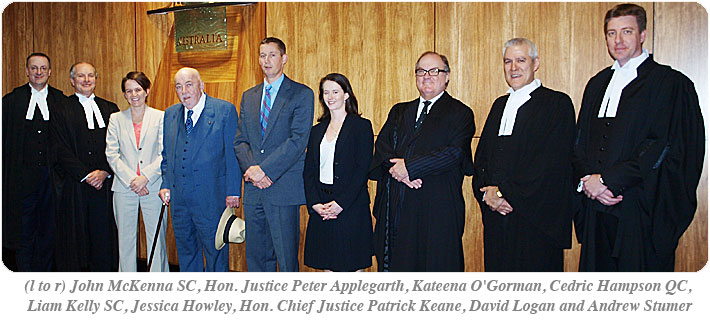
Justice Peter Applegarth
Photo of Magdalen College by Ozeye
The RAAF Legal Reserve has vacancies for reserve legal officers who reside in the Brisbane and Townsville areas to provide legal support primarily to RAAF Amberley and RAAF Townsville.
RAAF Reserve Legal Officers undertake a wide variety of legal tasks, some of them rarely encountered by their civilian counterparts. Practice areas are in Operations Law (a sub-set of public international law), Military Discipline Law and Military Administrative Law (particularly administrative inquiry work). Full training is provided at Commonwealth expense.
Reserve Legal Officers also provide civil law advice and provide legal aid to military members and advice to commanding officers.
Entry into the RAAF Specialist (Legal) Reserve is by selection to fill available vacancies.
RAAF Specialist (Legal) Reserve members on part-time service are paid at a daily rate of pay which is tax-free. Salary will continue to increase based on Competency Level, rank and the number of years of service completed in that rank.
Contact officers are Group Captain David Montgomery (0414 180 060) for Amberley positions, and Group Captain Myles Thompson (0458 310 200) for Townsville positions. Expressions of interest (including a CV) should be sent electronically to tanya.fraser1@defence.gov.au by Thursday 30th September 2010.
SILQ Barrister: Australia’s leading software for barristers. SILQ takes care of your business so you can spend more time on your business. Available on both Mac and PC
|
Download a FREE trial of a fully-functional version of SILQ Barrister.
|
|
|
| |
“When I started at the bar, my wise and insightful junior master gave me three tips: The first was ‘A judge’s joke is always funny’; the second: ‘no matter how hard, resist the temptation to refer to the UNCITRAL model law in every advice’ and the third was ‘get SILQ’.”
- Jo Chapple, QLD more ...
“SILQ is indispensable in my private practise as a barrister. SILQ saves me time and money, and gives me unparalleled control over my practice and accounts. I would not dream of practising without it.
- Philippe Doyle Gray, NSW more ...
“SILQ gives me complete control of my financials, and assists me to capture significantly more chargeable time. It therefore pays for itself many times over every year.”
- John Oswald-Jacobs, VIC more ...
|
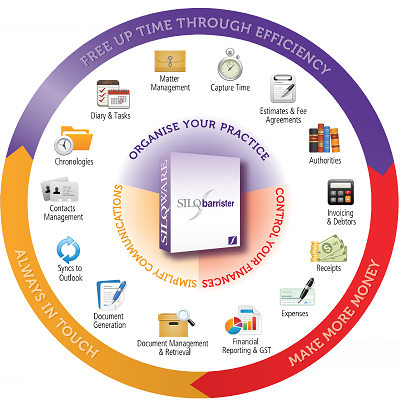 |
| SAVE TIME |
MAKE MORE MONEY |
TAKE CONTROL |
EASY TO USE |
SILQ takes care of the tedious administrative tasks you would otherwise spend hours on every week.
- Access all your matter and contact details in the one place.
- Automate document generation with your own, customisable letterhead and font (invoices, cost disclosures, cost agreements, chaser letters, faxes).
- Easily comply with Australian legislative requirements.
- Assess and report GST clearly, accurately and instantly.
|
SILQ is built around time costing so all your time can be billed — increasing your profit.
- Allows you to manage your business with minimal administrative support.
- Capture every minute with electronic time-entry.
- Issue invoices faster with automated document generation.
- Identify outstanding invoices at a glance; then generate chaser letters instantly.
- Reduce accounting and bookkeeping fees with streamlined reporting.
|
SILQ creates and tracks all financial and administrative tasks in one simple and easy-to-use environment.
- Quickly and easily generate graphs and reports to give you a clear overview of your business.
- Evaluate your financial situation instantly; the work you’re doing, completed, billed and received.
- Automatically organise and store documents relating to any and every matter.
- Anticipate tax confidently, lodge BAS punctually and easily deal with end-offinancial year accounts.
|
SILQ’s layout is very user friendly and intuitive. If you need support, you’ll be speaking directly with a local expert who will guide you.
- SILQ has been designed from the ground up specifically for barristers by barristers.
- Since its launch in 2003, SILQ has been regularly upgraded based on feedback from some of the many hundreds of Australian barristers using the software.
- The user-interface has been designed for speed and simplicity.
|
Download a FREE trial of a fully functional version of SILQ Barrister.
|
 |
For more information phone us on 1300 556689 or email us at sales@silq.com.au |
At a function hosted by the Bar Council on 17 August 2010, speeches were delivered by the Honourable Justice Peter Murphy of the Family Court of Australia Richard Douglas SC, President of the Bar Association of Queensland and Federal Magistrate Michael Baumann.
The function was attended by members of the judiciary from the Family Court of Australia and the Federal Magistrates Court.
The speeches of Justice Murphy and the President are reproduced below.
RICHARD DOUGLAS SC:
Your Honours, Queensland Law Society Vice-President Bruce Doyle, and colleagues.
Thank you for attending.
In particular I welcome Justice Burr and Justice Young visiting from southern climbs. With weather like this no doubt your Honours will find good reason to extend your stay.
Many of you think, no doubt, that the only purpose of this occasion is to recognise the industry and skills of the judges who sit and the advocates who regularly appear in the Family Court and the Federal Magistrates Court.
That is true, but not comprehensive of purpose.
This occasion is also to recognise that skilled professional advocacy plays an important role in our society, and that the Family Court and Federal Magistrates Court, presided over by lawyers of the highest quality, is a place where that advocacy can be practised on a regular basis.
All too frequently in recent years young fresh faced barristers, when I ask what legal sphere they hope to practise in, retort “any except family law and crime”. Another common answer is “commercial law”.
The first “negative” answer is not only irritating but insulting, per se and to many here.
The second answer, for many, remains aspirational, not recognising that commercial law permeates most practice areas.
To be fair, it is equally irritating and insulting to those who infrequently appear in specialist courts, such as the Family Court or the Federal Magistrates Court, to receive a comment (usually from the opposing advocate, but occasionally from the Bench) such as “I didn’t know you appeared in this court” or “We don’t do things that way in this court”.
Surely it is bleeding obvious that it is the quality of the advocacy that counts not whether the practitioner is perceived as a member of the so-called “club”.
Speaking of the quality of advocates, Lord Birkett, in his 1960 BBC book “Six Advocates” said this of the desired traits of a barrister:
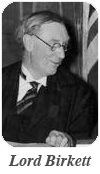
Whatever the case and whatever the court, the first and vital thing is that the advocate shall know the case he desires to make with complete thoroughness. He must have a complete mastery of the facts and he must have the power to present them in the most attractive way. He must have a quick mind and an understanding heart. He must acquire in some way an insight into human nature and a natural unforced sympathy with all sorts and conditions of men. Above all, he must have what I can only call an intuitive recognition of what the circumstances of the case require as it slowly unfolds itself before the court.
These qualities are required, and can be practiced in any court or tribunal.
With those matters in mind I invite to the lectern the first of our two speakers this evening.
Justice Peter Murphy, as formerly Murphy S.C., was one of the Queensland bar’s most accomplished trial and appellate silks.
He is a nationally accredited advocacy trainer.
He is passionate about good advocacy, not just for its own sake but for the benefits it affords the community.
When I was an undergraduate student at university in the mid-1970s he and another fellow named Tim Gartside were the source of much humour.
As a young lawyer he cycled everywhere.
I recall he and Tim cycled in the UK from John o’Groats in the north to Lands End in the south and then beyond into and across the Sahara (albeit, you will be pleased to know, then with ferry assistance from the UK).
I welcome Justice Murphy.
JUSTICE PETER MURPHY:
Thank you Richard.
Of course, I want to thank you, your Council and the Association for this evening – and, in particular, its appealing price tag.
But I also want to thank you, and through you, the Council and Association more generally, for your genuinely active steps in keeping open the lines of communication between the Association and the court and for your support of us.
This evening had its genesis in some recent informal but wide-ranging discussions between us and, as you have correctly identified, the preservation of advocacy as a skill worthy of commitment and hard work and its crucial role in the preservation of the Bar was central to those discussions.
Our conversations in that respect are on-going and I think it is fair to say that we are genuinely excited about the prospect of some future legal education initiatives in advocacy training that are, as yet, at an embryonic stage.
We also spoke, though, about the attitude to which you have made reference – the “anything but family law and crime attitude”. One of the things that this evening is designed to underscore is the irony of that attitude.
The fact is that, if you are a barrister who is at all interested in the art of advocacy – and, as importantly, interested in preserving its central role to the practice of this profession – family law and crime should be high on the list of practice areas. They are the areas that get you on feet. They are the areas that expose you to a variety of witnesses – expert and lay – and to the widest variety of circumstances within which the craft is practised.
And, of course, as experience and skill grows, commercial law may not just be aspirational: family law practice frequently intersects with commercial law.
So, too, we spoke of “the club” of which you made mention. When at the bar I considered that the walls of “the club” were more illusory than real and I hold to that view now.
I think I can say, Richard, that, in my court at least, greeting the newcomer with “I didn’t know you appeared in my court” will, if said at all, be words of welcome.
And, in my court at least, the words “We don’t do things that way in this court” are by no means reserved for those new to the jurisdiction; they are applied universally to all who are unprepared.
For the court’s part, thank you again for tonight. Thank you again for your support and for facilitating this advertisement for advocacy and, particularly, this advertisement for family law as an area where good advocacy can be practised and developed.
I propose that, in the spirit of co-operation, we should now partake of the Bar Association’s largesse.
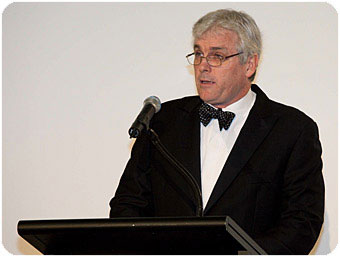 RICHARD DOUGLAS SC:
RICHARD DOUGLAS SC:
Mr Michael Baumann was Queensland’s first Federal Magistrate. He was appointed Federal Magistrate in 2000 when he also graduated with a master of laws.
In his time as a solicitor he was one of Queensland’s leading solicitors. As a young solicitor he was named as the Law Council Young Lawyer of the Year and two years later elected the youngest ever President of the Queensland Law Society.
He also served as President of the Legal Aid Commission and Chair of the Board of Legal Aid Queensland.
I welcome Federal Magistrate Michael Baumann.
Two years ago at the dinner to celebrate the Honourable Justice Kiefel’s elevation, James Crowley QC listened with great interest to Her Honour’s reminiscences. It was then that he decided to undertake the daunting task of updating the Association’s history. After a couple of years and 60,000 words he has almost completed the documentary research and is turning his attention to some of the Bar’s rich oral history.
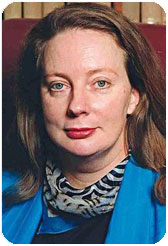 So what was it about Kiefel J’s words that tweaked his interest?
So what was it about Kiefel J’s words that tweaked his interest?
According to Crowley QC, “In her speech Justice Kiefel opined that barristers, as a group, showed many indicia of a native tribe because much of their history has been passed down orally from older members to younger members. It was an accurate observation”. He then continued, “Barristers both young and old are inspired, as much as entertained, by hearing stories of forensic triumphs and tragedies”.
Those who have visited the Supreme Court Library in the last three months may have seen Crowley beavering away. “The older records of the Association are held by the library and it has been a ‘devil of a job’ to go through them” he said. “Looking back over the last 40 years reminded me of issues that seemed critical then, but are now long forgotten”.
The difficulty for those seeking to record the profession’s history has become very apparent. For Crowley “much of the documentary material, though informative, does not always convey the colour and life of the profession. That is why I am looking for members’ help”.
Who were the great barristers?
“I am very aware that this work should not be merely a personal reminiscence. To convey both the colour of life at the Bar and to broaden the source material for the history I am keen for input from members” Which advocates should be identified? Who do members think are worthy of mention from each decade and why?
Being one of a dying breed of ‘generalists’, Crowley is sympathetic to the Criminal bar. “I am aware that those who practise in crime may be discriminated against because their work at nisi prius is not reported. That is why the opinion of members is so crucial; they will know through their professional experiences who are worthy of recording.”
From his long experience Crowley remarks, “Incidentally, I have seen some barristers with the potential for greatness elevated before their full potential at the Bar could be realized. It is hard to judge the true value of counsel who had barely slipped on silk before they moved to the Bench”.
He notes that there are others who may not rank amongst the great advocates but still deserve a mention. “I would like to hear members’ views of who, though not notable in the overall scheme of things, may have played a significant role in the history of the association. For example, Trevor Chapell is a minor figure in the history of Australian cricket but he made a significant contribution to the game” he said.
What were the great cases?
Crowley QC is also seeking members’ opinions on what important cases have come from Queensland. “I am very aware that this history should not be of interest only to barristers. I want it to depict the role the Bar played in the larger social context. I am interested in recording our role in the development of the law”.
On this note Crowley points out “the arguments and legal issues raised by counsel are the issues the court considers. An argument developed in counsel’s chambers often becomes the core of a judgment and the precedent”, he said.
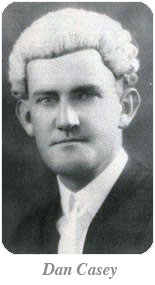 Search for additional material
Search for additional material
With the majority of the work on the documents having been completed, Crowley is looking for other material of historical value. “Outside of the Association’s papers and newspaper reports, documentary material is scarce” Crowley said. “Barristers often hoard. I’m hoping that transcripts, diaries, even scrape books may emerge that can give me something more to work with.”
Further, Crowley noted the number of sons and daughters of chief justices, judges, queen’s counsel and second generation barristers at the Bar. “I am hoping that they may provide access to correspondence or personal papers that prove useful.”
Oral History of the Bar
Finally of less historical value but of great entertainment value are the stories of forensic triumphs and tragedies that are so much a part of our culture. Crowley is interested in tales of legal dramas for possible inclusion in the book.
“Modern communication has made it so much easier to supply information.” If members can help with information they are asked to e-mail James Crowley QC at jcrowley@qldbar.asn.au.
Hearsay will keep track of his progress and provide regular updates.
Income Protection, Life Insurance, Trauma Insurance
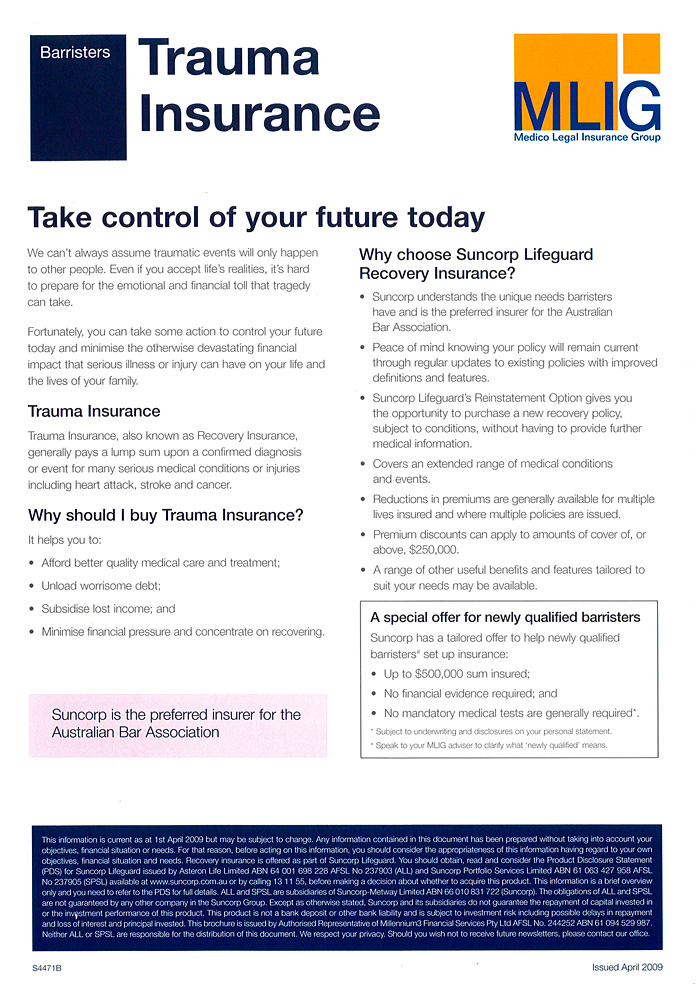
From time to time, our hard-working journalists take time out to surf the web and, yes, such a practice is allowed under the workplace agreements in place with our staff. What follows is a selection of material discovered during many such forays into cyberspace (and which have been deemed suitable for publication by our resident censor, Sir George Street).

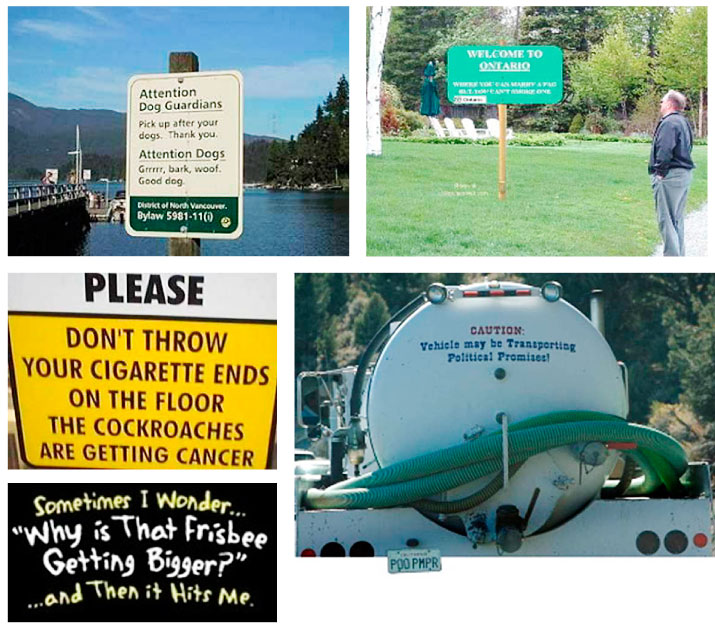
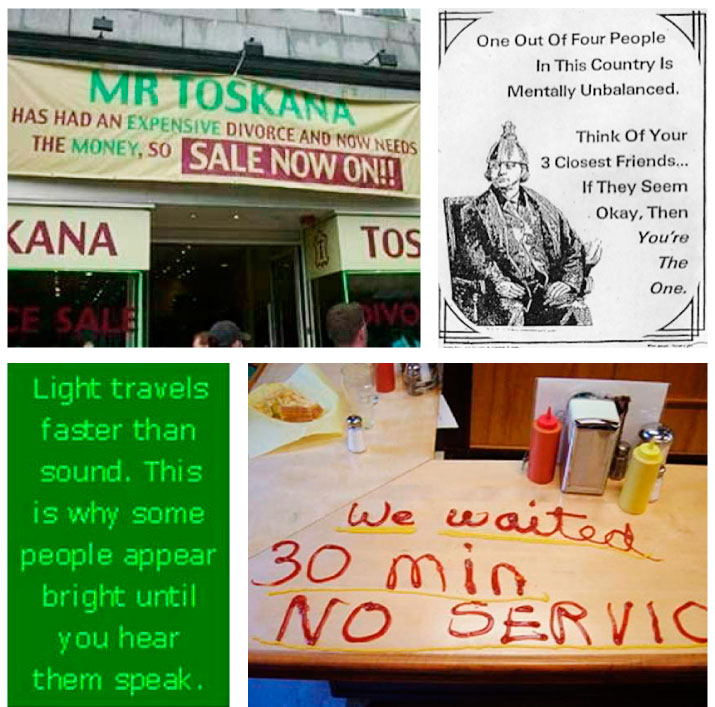
Experience the difference of Bank of Queensland’s Private Bank.
Bank of Queensland’s Private Bank is designed to provide a high level of
personalised service to a select group of highly valued personal and
business customers for their banking requirements.
Here is what some of Claire’s customers have to say:
“I have no hesitation in recommending Claire for any banking needs. Throughout all my dealings, Claire has demonstrated a passion for providing exceptional customer service and developing creative solutions to complex problems.
Claire’s strengths are her attention to detail, taking time to understand my needs and maintaining timely communication at all times. Above all, I have the upmost trust in her experience and knowledge and know that I am getting the best possible advice and assistance available.
I have no hesitation in recommending Claire to any prospective clients.”
Aaron Guthrie
Senior Consultant – Global Mobility
HR Support Services
Boeing Australia Ltd
“We found Claire to be a very outgoing, helpful and enthusiastic person in all our dealings with her at Bank of Queensland, Toowong. Her initiative in many areas allowed us to have access to systems and ideas through her regular contact. She even arranged business seminars for the local community. We feel her approach to customer service and her obvious dedication to her work makes her a stand-out in her field. It also reiterates the skill Bank of Queensland has in choosing the best people. We highly recommend Claire to anyone looking for professionalism and great service.”
Doug and Sue Disher
Doug Disher Real Estate
“I find that in this day and age it is extremely rare to come across a bank manager who offers personal and tailored service in such a way that clients feel comfortable and secure. Claire, through her many years of experience does this effortlessly with an old-fashioned personal touch.
She is a highly professional business woman with vast product & business knowledge. I appreciate the friendly & informative relationship that O’Neil, Scott & Associates has formed with Claire, as her assistance to our clients has become invaluable.
It is for these reasons that I recommend her to you as your friendly business and personal banker.”
Kind Regards
Chris Scott
O’Neil, Scott & Associate
IT’S NEVER BEEN EASIER TO GET FIT!
With 10% off, $0 joining fee, a choice of membership options and access to 93 Clubs in Australia and over 540 Globally!
Form great habits from day one, by taking up the Results First program – 3 x one on one personal training sessions for only 84.95 and if you visit Fitness First once a week for the first 12 weeks, you can get your $84.95 refunded!
To find out more about the Bar Association of Queensland’s Preferential Membership Rates click here or go to your local Fitness First Club to join.
A Review of Jury Selection: Call for Submissions
The Queensland Law Reform Commission is reviewing the selection of jurors under the Jury Act 1995. The Commission has released a Discussion Paper, which examines the law in relation to the selection, participation, qualification and excusal of jurors.
The Discussion Paper is available on the Commission’s website at http://www.qlrc.qld.gov.au/wpapers/WP69.pdf. It is also available free of charge from the Commission by phoning (07) 3247 4544 or emailing the Commission at qlrcjuries@justice.qld.gov.au.
The closing date for submissions is 30 September 2010.
Return to work assist
Amendments to the Workers’ Compensation and Rehabilitation Act 2003 (the Act) regarding a worker’s obligation to mitigate their loss came into effect from 1 July 2010.
Section 267 of the Act has been amended to provide that a worker must satisfactorily participate in any return to work program or suitable duties arranged by Q-COMP.
Return to work assist is a free Q-COMP initiative aimed at helping injured workers whose compensation claims are nearing completion, or are completed, and who don’t have a job to return to.
Requests for a copy of a Return to work assist file should be made as follows:
- S572 of the Act — a worker (or their solicitor) can apply for a copy of their Return to work assist file by sending a written request to Q-COMP. Written requests from a worker’s solicitor should be accompanied by a signed authority from the worker.
- S573(3A) of the Act — Q-COMP may, if asked by an insurer, disclose to the insurer any information it has that is relevant to a claim against the insurer. Requests should be made in writing and should include the claim number.
Requests for information from a Return to work assist file should be sent to legalservices@qcomp.com.au
Practice Direction No.1 of 2010
Chief Federal Magistrate John Pascoe AO CVO issued Practice Direction No. 1 of 2010 on 9 August. The practice direction relates to the robing of counsel in the Court. Both the practice direction and information on robing and court etiquette are available at the Federal Magistrates Court’s website – http://www.fmc.gov.au/services/html/court_etiquette.html
The following robing requirements for counsel apply in all jurisdictions from 6 September 2010:
- Barristers will robe in final hearings for all judgments, trials and contested hearings in which oral evidence is to be adduced. Barristers will robe wherever the Court is sitting (including all circuit locations).
- Barristers should not robe in duty matters or for interim or interlocutory applications (unless such applications form part of a trial or a contested hearing in which oral evidence is to be adduced).
- Barristers will robe for ceremonial sittings.
- Wigs, full-bottomed or otherwise, are not worn on any occasion.
World Day Against the Death Penalty – 10 October 2010
ALHR President, Stepehn Keim SC, urges action for World Day Against the Death Penalty as David Marr prepares to speak in Brisbane.
“At a time when the death penalty hangs over Australians, I urge Australians to do what they can to mark World Day Against the Death Penalty on 10 October, this year” President of Australian Lawyers for Human Rights (“ALHR”), Stephen Keim, said today.
“ALHR will be hosting a sold out dinner at the Rydge’s South Bank Hotel on Friday, 8 October in Brisbane with Aussies Against Capital Punishment (AACP) as our way of marking the World Day. The holding of the dinner has gone a long way to raise awareness of the need to express opposition against the death penalty with other groups around the world. I hope lots of individuals and community groups will hold their own events. AACP is providing materials to assist a number of Queensland parishes mark the World Day in their Sunday liturgies.”
Mr. Keim said that Mr. Marr, who is an accomplished journalist, speaker and author, is likely to provide excellent insights and to inspire listeners to continue the fight against capital punishment in all countries where it continues to be used. Mr. Keim said: “Although no Australian jurisdiction retains the death penalty, there is a potential for it to impact Australians. Members of the so-called Bali Nine, including Brisbane’s Scott Rush, are on currently on death row in Indonesia. The ongoing hearing of Scott’s appeal has brought the trauma of death row to us all again.”
“We have been most gratified by the support we have received for the dinner”, said Mr. Keim. “Cameron Dick, the Attorney-General, will attend and speak on behalf of the State Government. Politicians from all major political parties will be in attendance including Queensland Senators, Barnaby Joyce, Claire Moore and Senator-Elect Larissa Waters. The local judiciary and legal profession have given great support as have people from all walks of life. We are stretching the boundaries of the room to squeeze late takers in”.
Four Australians have been executed since 1986: Van Nguyen (Singapore, 2 December 2005); Michael McAuliffe (Malaysia, 19 June 1993); Kevin Barlow (Malaysia, 7 July 1986) and Brian Chambers (Malaysia, 7 July 1986).
Mr. Keim said that international legal developments were continuing to move against capital punishment. “The recent decision of the Court of Appeal in Kenya that mandatory capital punishment was unconstitutional as constituting inhuman punishment is a further step in this long process. Individuals and groups in Australia can add momentum to these developments by marking World Day Against the Death Penalty in an active and visible way”, he said.
TC Beirne School of Law – Current Legal Issues Seminar 2010
Current Legal Issues is a series of seminars which commenced last year. The series seeks to bring together leading scholars, practitioners and members of the Judiciary in Queensland and from abroad, with a view to:
⢠providing a forum for the critical analysis and discussion of current legal issues;
⢠bringing to bear upon those issues the different perspectives offered by leading members of the Academy, profession and Judiciary;
⢠forging stronger links between academic and practising lawyers in Queensland.
Each seminar will comprise a chair, speaker, and commentator. The chair will introduce the speaker and commentator. A paper will then be presented by a leading practising or academic lawyer, and will be subject to a brief, expert commentary. Subsequent debate and contributions from the floor will be facilitated by the chair. Seminar papers will be available in advance at www.law.uq.edu.au/current-legal-issues-series, a website hosted by the University of Queensland.
14 October 2010: “Sentencing in the context of a sentencing advisory council”
Speaker: Professor Arie Freiburg AM, Monash University
Commentator: The Hon. Chief Justice Paul de Jersey AC, Chief Justice of Queensland
Chair: Mr Anthony Moynihan S.C., Director of Public Prosecutions, Queensland
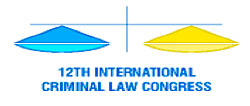 12th International Criminal Law Congress – 20 to 24 October 2010
12th International Criminal Law Congress – 20 to 24 October 2010
The 12th International Criminal Law Congress program will explore contemporary issues of international and national criminal justice.
The program will include such diverse topics as identity fraud and crime associated with the Internet, recent developments in the science of the mind and its impact on criminal responsibility; developments in the International Criminal Court, international developments in therapeutic justice; decriminalisation of Portugal’s drug laws and the effect on crime rates, the use of language in modern penal statutes to mislead, legal discourse and the criminal law and indigenous issues focusing on the Palm Island and Arukun cases. There will be an important session on public confidence and sentencing which will explore the results of a significant longitudinal research program exploring this issue, and a paper on the Gangland Trials in Victoria presented by Justice Betty King. A large number of prominent commentators from Australia, New Zealand and other countries have agreed to participate. Dr Joao Goulao OF of the European Monitoring Centre for Drugs and Drugs Addiction will present a paper on his country’s experience in the wake of the decriminalisation on most drug use in 2001. The Chief Justice of Queensland, the Honourable Paul de Jersey AC will present the keynote speech at the conference. A number of other prominent Judges will be involved as speakers and commentators.
There will be a very interesting social program including the Congress dinner at the Sheraton Noosa and the traditional long lunch to be held at Ricky’s on the river at Noosa Heads.
In keeping with previous conferences there is certain to be controversy and also fun with the traditional social functions being maintained. The conference should be of interest to not only Judges and Magistrates and practising lawyers, defence and prosecution, but also to teachers, researchers and students of law. As well as the venue, rooms will be booked in more modestly priced accommodation within walking distance of the venue.
Please visit the Congress website (www.crimlaw2010.com) for further information and to register for the Congress.
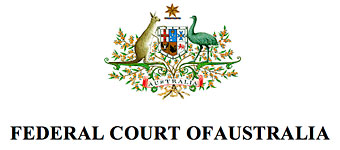 Admiralty and Maritime Law Seminar – 9 November 2010
Admiralty and Maritime Law Seminar – 9 November 2010
The Federal Court of Australia’s Admiralty and Maritime Law Seminar will be held via videolink on 9 November 2010. The seminar will be chaired by the Honourable Justice D M Ryan and the Honourable Justice S D Rares. The topics of this year’s seminar are ‘Is it time to consider reform of the Admiralty Act 1988?’, to be presented by Alexander Street SC and Edward Cox, and ‘Demystifying the Personal Property Securities Act 2009 in Admiralty Law’ the presenters of which are Gregory Nell SC, Andrew Boxall, Frazer Hunt and Dr James O’Donovan.
For more information please contact Tony Tesoriero on (02) 9230 8250 or Rainer Gilich on (08) 9268 7122 or email nswevents@fedcourt.gov.au
 Call for presenters – the 2011 Queensland Law Society professional development calendar
Call for presenters – the 2011 Queensland Law Society professional development calendar
The Queensland Law Society’s professional development team, in collaboration with the Law Society’s Sections and Committees, are now planning a range of conferences, seminars and interactive workshops for 2011, including our flagship program for March, the 49th Annual Symposium.
Expressions of interest are sought to present on substantive topics (across a range of practice areas and levels of experience) and additionally, the suite of core subjects for solicitors, including practical legal ethics, professional skills and practice management/business skills.
To express your interest in presenting, please email a current CV, a 100-word description of your nominated topic, plus preferred presentation format to the Manager of Professional Development, Holly Bretherton, (h.bretherton@qls.com.au), or alternatively, give Holly a call to discuss on (07) 3842 5905.

The Australian Bar Association Conference – Berlin – 3 to 6 July 2011
Expressions of interest are now being taken for the Australia Bar Association Conference to be held in Berlin between 3 July and 6 July 2011.
The Conference will commence in Berlin on the evening of Sunday, 3 July 2011 and conclude with a Gala Dinner on Wednesday, 6 July 2011. The Business sessions will be held at the Adlon Hotel.
The names of those interested will be placed on a Priority List to receive a registration brochure prior to any general mailout. Please send your full contact details to Dan O’Connor at the email address below or by facsimile.
Questions about registration?
Contact Dan O’Connor, ABA Conference Secretariat, Tel: (07) 3238 5100, Fax: (07) 3236 1180, Email mail@austbar.asn.au
Questions about travel?
Contact Ruth Carlton, World Travel Professionals, Tel: (07) 3220 2008, Fax: (07) 3220 2288, Email ruth.carlton@worldtravel.com.au
5th ABA Residential Advanced Trial Advocacy Course – 17 to 21 January 2011
Registration for the fifth ABA Residential Advanced Trial Advocacy Course to be held in Melbourne from 17 to 21 January 2011 is now open. Places in the course are limited to people with seniority of at least two years at the private Bar. The coaching faculty will comprise top senior Australian and international barristers, judges and performance coaches.
The course provides an opportunity for members to develop their advocacy skills by preparing a case and experimenting with a number of styles of performance to see which is the most effective for that advocate on that occasion.
For more information please contact Chris D’Aeth, ph. (02) 9229 1712 or email cdaeth@nswbar.asn.au.

17th Commonwealth Law Conference, Hyderabad, India – 5-9 February 2011
The 17th Commonwealth Law Conference ‘Emerging Economies & the Rule of Law – Opportunities and Challenges’ will take place at Hyderabad, India, from 5 to 9 February 2011.
The Commonwealth Law Conference (CLC) is a prestigious event that brings together legal practitioners from all over the Commonwealth to debate current issues affecting practice and the profession, exchange views and experiences with colleagues and get up to date with the latest commercial products and services.
Programme streams will focus on:
⢠Human Rights & The Rule of Law
⢠Corporate & Commercial Law
⢠Legal & Judicial Profession
⢠Contemporary Legal Topics
For more information, visit www.commonwealthlaw2011.org


 Cedric Hampson later steered many other Queenslanders in the direction of Magdalen College. They include the Chief Justice of the Federal Court, Patrick Keane.
Cedric Hampson later steered many other Queenslanders in the direction of Magdalen College. They include the Chief Justice of the Federal Court, Patrick Keane.



 RICHARD DOUGLAS SC:
RICHARD DOUGLAS SC:  So what was it about Kiefel J’s words that tweaked his interest?
So what was it about Kiefel J’s words that tweaked his interest? Search for additional material
Search for additional material







